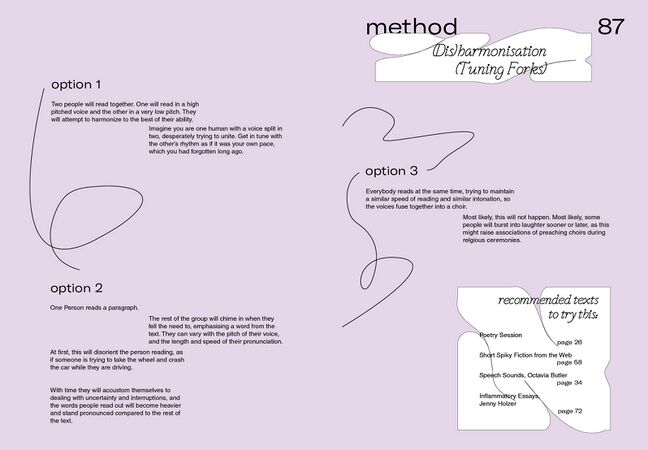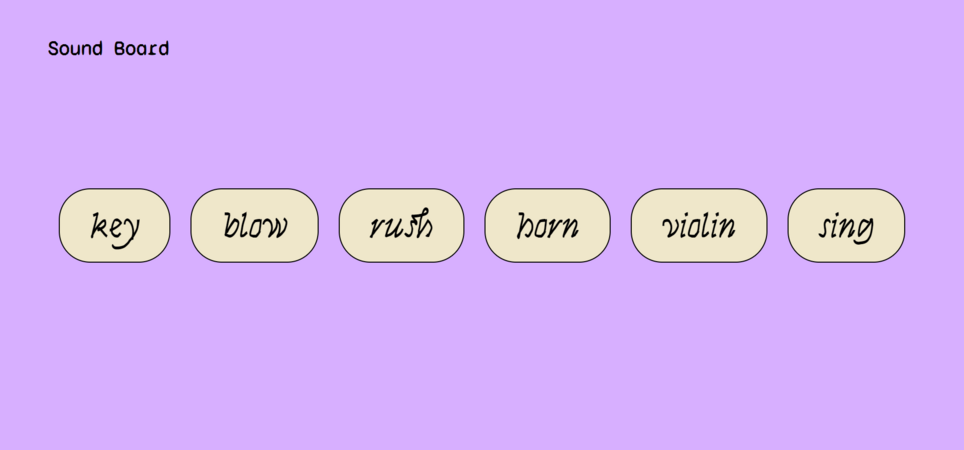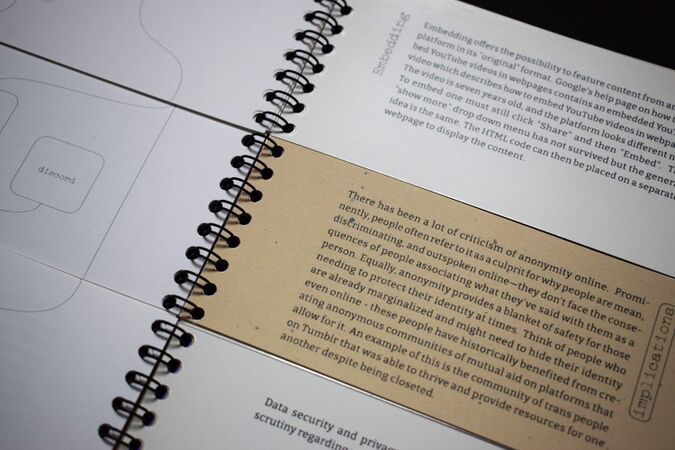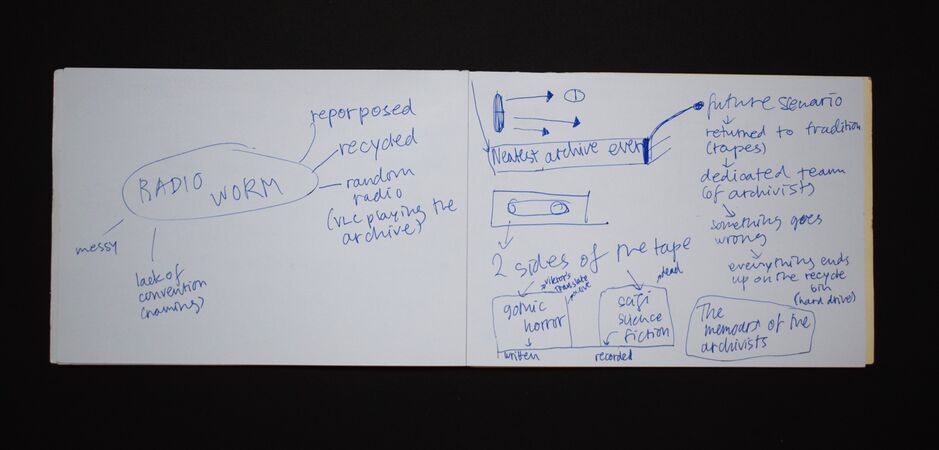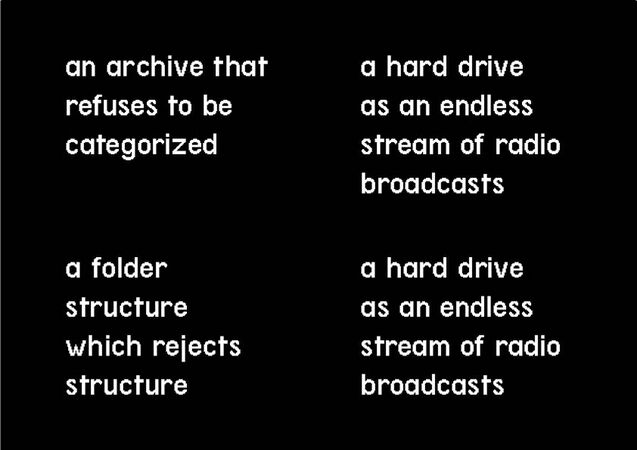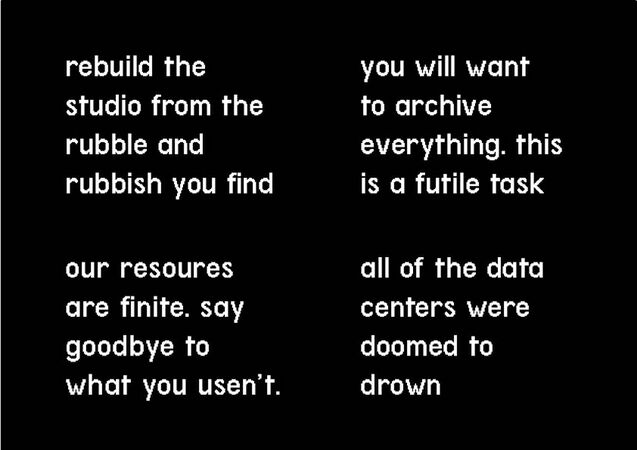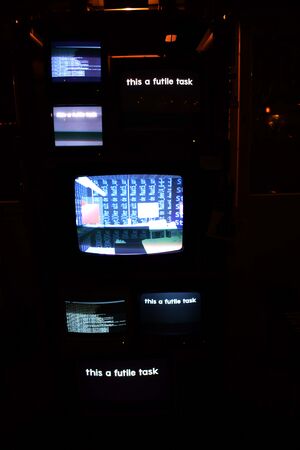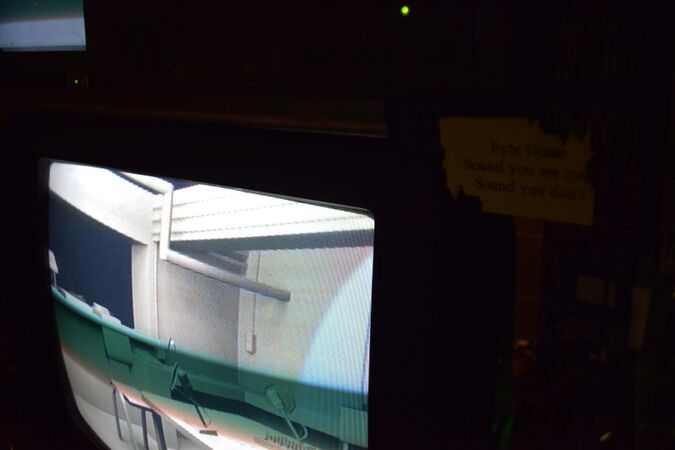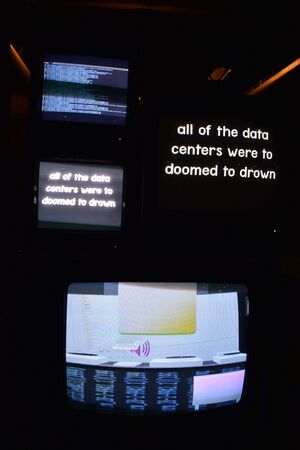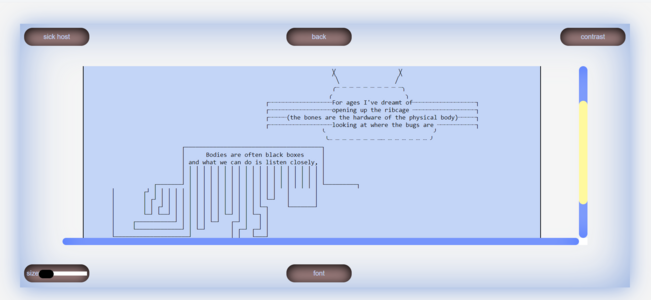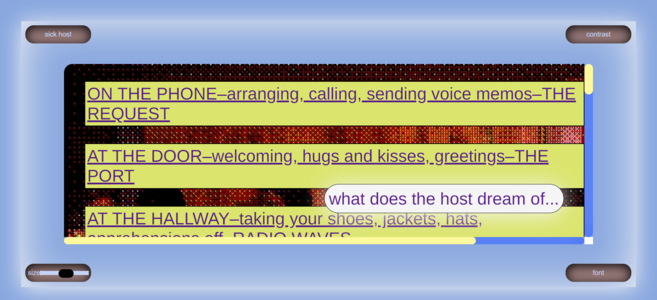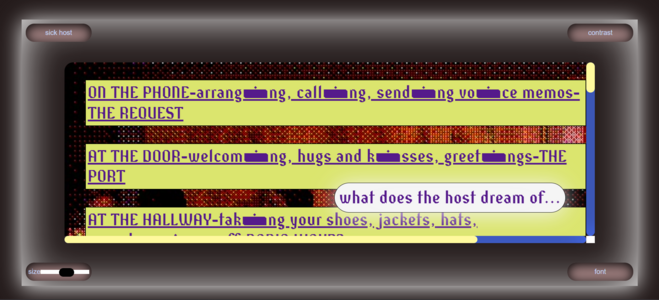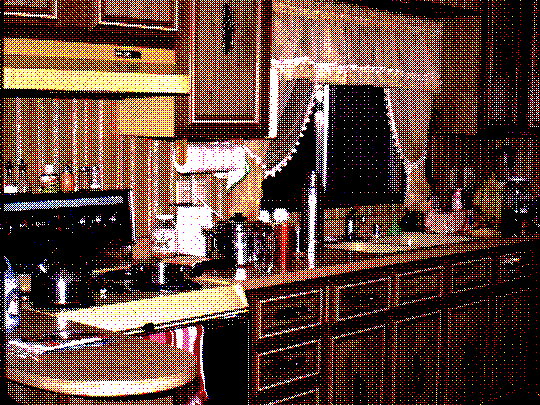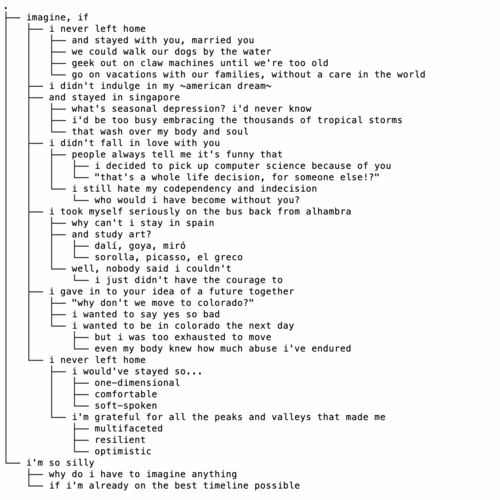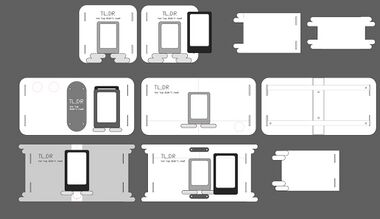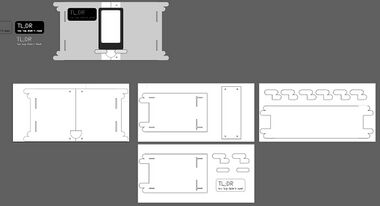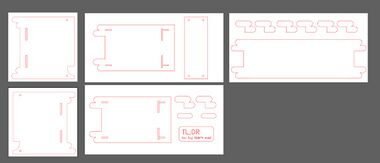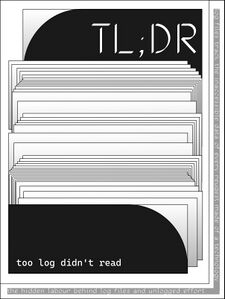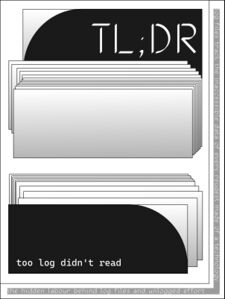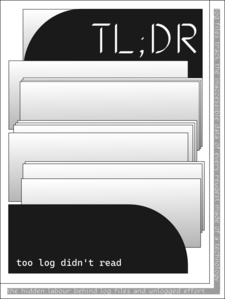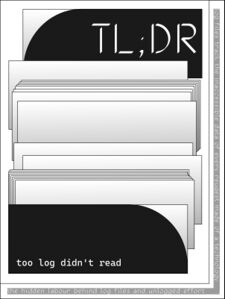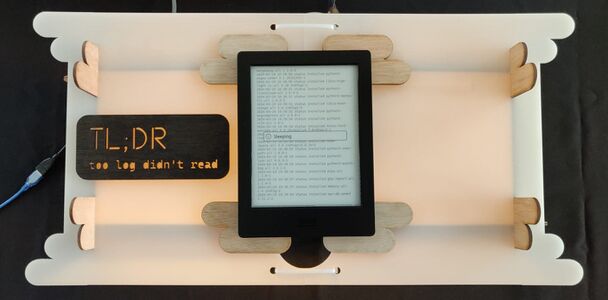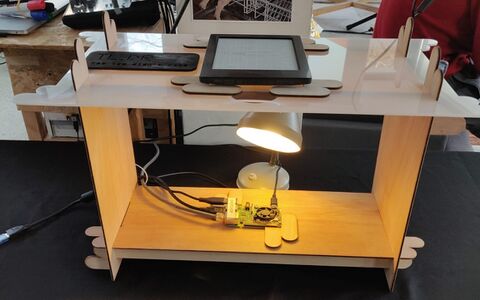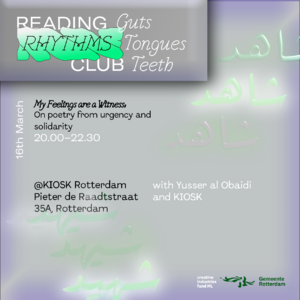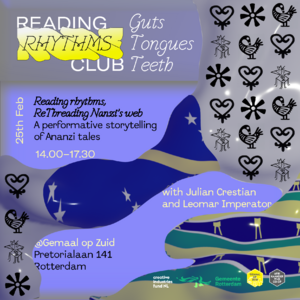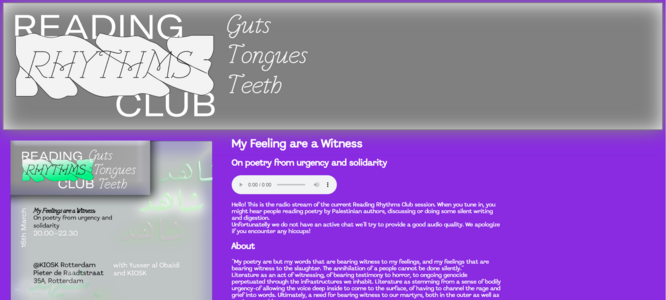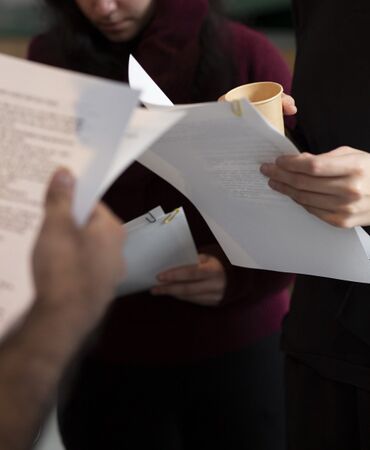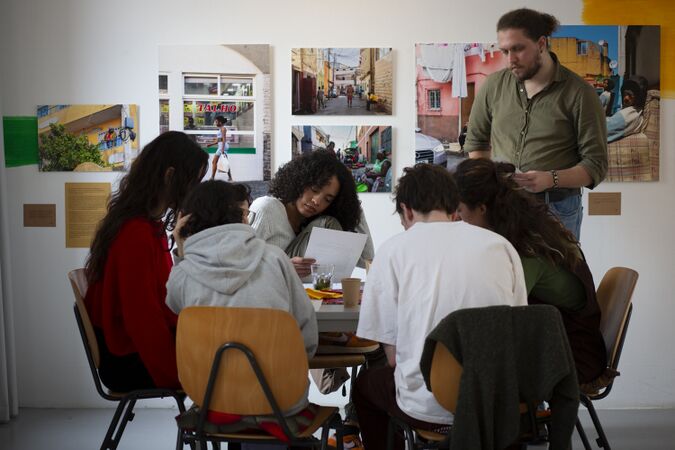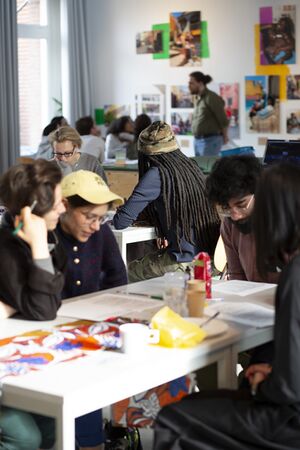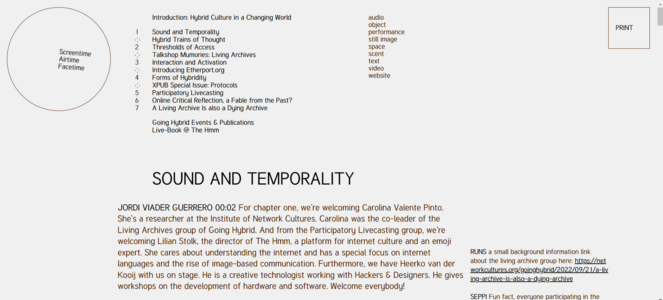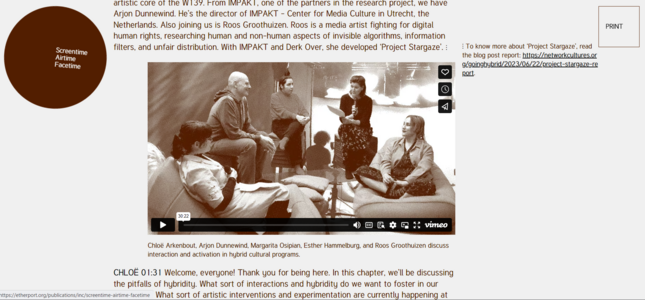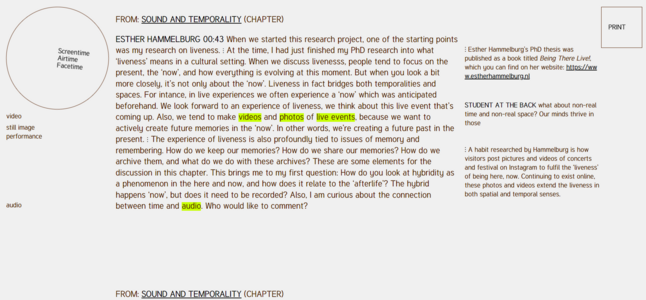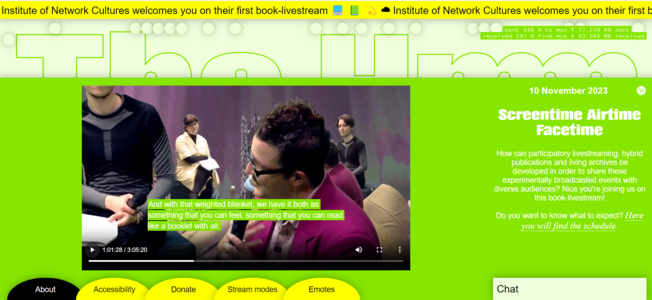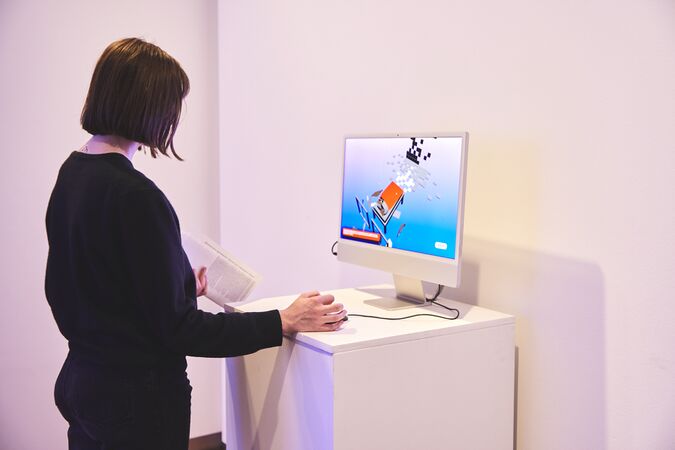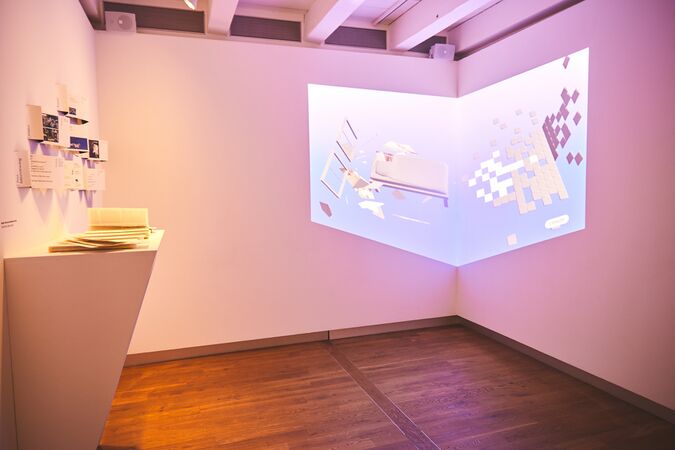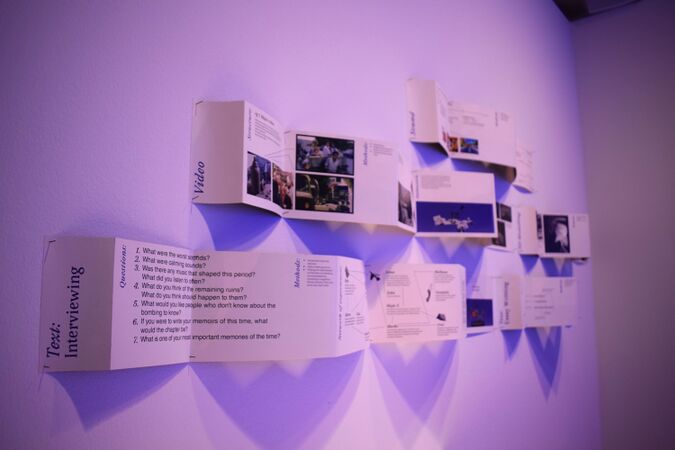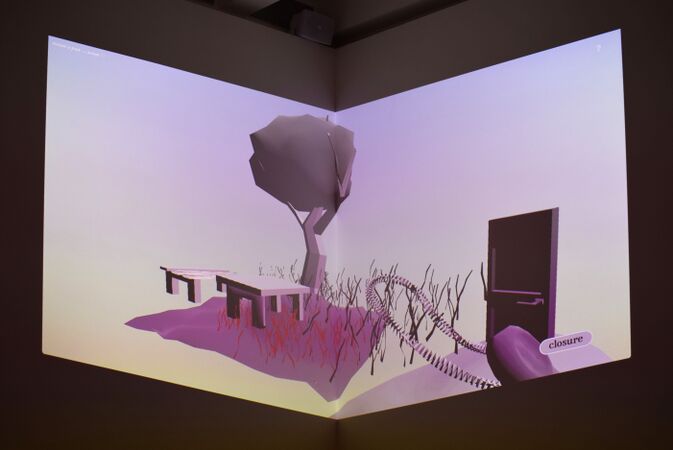User:Senka/
Special Issue 22
Broadcast: Radio Reading
Performative reading technique called chiming in taken from my collaborative work Reading rhythms club. Accompanied by sound boards, and both used for sonic highlights of theoretical texts.
Caretakers: Riviera, Lorenzo, Senka
☞ Connected to: Connected to: reading approaches, spaces for learning
Platform is the Problem
A publication which examines how social media platform features condition behaviour online, as well as tries to find playful alternatives. Created with Riviera.
☞ Connected to: web to print, printed matter, editorial decisions
Broadcast: Personal Accounts of Irreplaceable Lace
A speculative fiction broadcast about the 200 years of history seen through archivists' practices, media archeology and personal notes.
Investigating the role of fiction in an archival practice and taking inspiration from Saidiya Hartman's method of 'critical fabulation'.
Caretakers: Riviera, Victor, Senka
☞ Connected to: fictioning, archival practices, writing
Byte Noise: Sound you see me, sound you don't
A 3D rendered video about digital storage, repurposing, radio Worm's studio space and clutter made with Lorenzo.
My role focused on making the 3D model and editing a script text that would give the video narrative meaning. The 3D model I made in blender, shared with Lorenzo as an obj file and coded with three.js for web use (the last bit is a bit in process still).
☞ Connected to: Connected to: invisibility of data and processes, archival practices
Special Issue 23
((In)ter)dependence
Editorial work that focused on spatial writing, multiple understandings and entry points to a text, as well as the experiential element of learning together. My contributions focused on bringing back the embodied relation to the readings and a spatial, concrete poetry approach to making sense of difficult definitions.
dependence
when you can't go about it on your own
└┅when you need┅┅┅┅┅┅to lean on┅┅┅┅depend on┅┅┅┅rely on┅┅survive with
┏┅others┅┅loved ones┅┅strangers┅┅groups┅┅communities
┇
┗┅resources┅┅material┅┅substantial┅┅substances┅┅help┅┅support┅┅mutual aid
┏┅immaterial structures┅┅coping mechanisms┅┅
┇
┗┅abstract systems┅┅┅┅┅┅┅┅┅┅┅┅┅┓
┇ ┇ ┇ ┇ of education
of justice ┛ ┇ ┇ ┗ of support
of health ┛ ┗ of care
in
░░░░░░ ░░░░░░░░░░░░░░░░░░░░░░░░░░░░░░░░░░░░░░░░░░░░░░░░░░░░░░░░░░░░░░░░░░░░░░░░░░░░░░░░░░░░░░░░░░░░░ ░ ░ ░ ░ ░ <-- you are often not here ░░░░░░░░░░░░░░░░░░░░░░░░░░ ░░░░░░░░░░░░░░ ░░░░░░░░░░░░░░ ░ outside ░ in ░ <-- isolated └───but instead in the space ░ between ░ categories ░ ░ topologies ░ ░ ░ ░ <-- apart from ░░░░░░░░░░░░░░░░░░░░░░░░░░ ░░░░░░░░░░░░░░ ░░░░░░░░░░░░░░ ░ ░ ░ <-- inside of ░ ░░░░░░ ░░░░░░░░░░░░░░░░░░░░░░░░░░░░░░░░░░░░░░░░░░░░░░░░░░░░░░░░░░░░░░░░░░░░░░░░░░░░░░░░░░░░░░░░░░░░░ ░░░░░░░░░░░░░░ ░░░░░░░░░░░░░ ░░░░░░░ ░ ░ ░ ░ ░ ░ the space between categories is erased ░ ░ ░ ░ ░ ░ ░░░░░░░░░░░░░░ ░░░░░░░░░░░░░ ░░░░░░░
care
Care is a loaded term. It's being thrown around a lot these days in the arts and design sphere; everyone is talking about facilitation with care, curation with care, designing with care... The term 'care' has it's own difficult medical history. Especially for folks with disabilities, the associations with care and the medical-industrial system is often grim, riddled with abuse, and uneven power dynamics. The term cannot be simply tossed around (imho) without a sense of a dedication to it. But equally, because of its grim history, disability justice activists have often turned towards using interdependence instead to emphasize a world we can all work towards. One in which relying on each other and building networks of care, is more important than independence.
☞ Connected to: reading approaches, spaces for learning
Sick Host
A non-linear, web folder essay on the technical and social implication of hosting while chronically ill. Inspired by the Glitch Feminism Manifesto, the Feminist Server Wishlist and folder poetry (poetry created in terminal folder structures).
Quotes from inspiration from the classes with Alice and Cristina, as well as my own sources:
- "A [physical, social, infrastructural…] body is a thing that needs" – Johanna Hedva, To Those Mad, Sick, Crip Selves
- "Sickness, in general, is parasitic." / "What is a parasite? An operator, a relation. This simple arrow intercepts. It intercepts organic messages in a living system, Noise, perhaps, but language as well, often living. All doctors have the same profession, we see. Let them speak, cut, give injections... they live and eat from the same profession. What is a parasite? A deviation, minimal to begin with, that can remain so until it disappears or that can grow until it transforms a physiological order into a new order. All sickness, all medicine, is parasitic in this new way." - Michel Serres, The Parasite
- “Pravda je kao zdravlje, misliš o njoj kad je nema, i zaista je neodređena, ali je možda najviše želja da se udavi nepravda, a ona je vrlo određena. Svaka nepravda je jednaka, a čovjeku se čini da je najveća koja je njemu učinjena. A ako mu se čini, onda i jeste tako, jer se ne može misliti tuđom glavom.” - Meša Selimović, Derviš i Smrt
- "A feminist server… Takes the risk of exposing her insecurity ... Tries hard not to apologize when she is sometimes not available” - A FEMINIST SERVER
☞ Connected to: Connected to: fictioning, archival practices, writing
TL;DR—too log didn't read
A project which aimed to make sense of the hidden labour that goes on in a feminist server through annotated log files and unlogged activity. Created with Thijs and Rosa.
My focus was on writing the annotation in a way that offered a didactic understanding of the operations running, as well as still be fun to read. Aside from this I was using Inkscape to generate the cover image and think about the interface and design.
☞ Connected to: invisibility of data and processes, archival practices
Work Outside (But Connected to) XPUB
Reading Rhythms Club
A nomadic experimental reading club that creates communal space for learning, embodiment, tangents, and slowness. Co-organized with Julia Wilhelm.
☞ Connected to: reading approaches, spaces for learning
Screentime Airtime Facetime
Dissemination of INC's research project on hybrid practices in cultural institutions. My role consisted of conceptualizing the format of the publication and doing editorial work. With Miriam Rasch and Carolina Pinto, I worked on a publication as an event, and web to print version.
☞ Connected to: web to print, printed matter, editorial decisions
ARK NFF Research fellowship
A research investigating collaborative practices with technology, and knowledge creation within cultural archives.
Saidiya Hartman method of critical fabulation and infusing achiving knolwedge with fictioning has greatly influenced me in terms of thinking about the silence and gaps in the archive.
Similarly references from the course greatly impacted how I saw our collaboration, most notably Freemans' The Tyranny of Structurelessnes' and Yuil's 'All Problems of Notation Will be Solved by the Masses'
☞ Connected to: fictioning, archival practices, writing
Momentary Lapse in Memory
An interactive digital environment concerning the memory landscape of the 1999 NATO bombing of Yugoslavia. An archive and essay which advocate for the unreliable. The essay investigates the impact of the archival practice on oral histories of conflict. Specifically, it asks to what capacity can the lived experience be devoured by the grinding machine of forced institutional remembrance, and how can it defy such a predicament?
☞ Connected to: invisibility, oral history, archival practices

